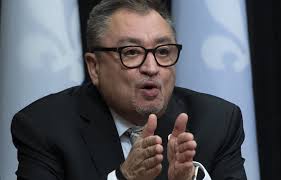
Introduction
Horacio Arruda, a prominent figure in Quebec’s public health landscape, has played a pivotal role in guiding the province through various health crises, most notably during the COVID-19 pandemic. His expertise as a medical doctor and public health specialist has made him an influential voice in shaping health policy and response strategies for the residents of Quebec. Understanding his contributions is essential, especially given the ongoing challenges in public health management.
Background and Career
Arruda, who has been serving as the National Director of Public Health since 2018, previously held several significant positions within Quebec’s health system. He has a solid academic background, including a degree in medicine from the Université de Montréal and a specialization in public health. Arruda’s extensive experience in managing health emergencies, including his involvement in the H1N1 influenza outbreak, established him as a key player in public health.
Role During the COVID-19 Pandemic
During the onset of the COVID-19 pandemic, Arruda became a household name in Quebec, frequently appearing in press briefings alongside Premier François Legault. His communication skills, combined with his scientific approach to handling the crisis, helped educate the public on vital health measures such as mask-wearing and social distancing. Despite facing criticism for decisions made early in the pandemic, he advocated tirelessly for the importance of vaccination, leading campaigns to encourage public participation.
Arruda’s strategies included implementing public health measures and providing updates on the evolving situation. His reliance on data-driven decisions garnered respect from many health professionals and helped quell misinformation during a time of great uncertainty.
Challenges and Controversies
Arruda’s tenure has not been without difficulties. Throughout the pandemic, he faced challenges, including political pressure and public discontent regarding lockdown measures. His decisions were often scrutinized, leading to discussions about transparency and government communication. Nevertheless, Arruda remained focused on his mission to protect public health, often reminding citizens of the collective responsibility required to manage the health crisis effectively.
Conclusion
Horacio Arruda’s contributions to Quebec’s public health sector and his leadership during the COVID-19 pandemic remain significant topics of discussion. As the province continues to navigate the long-term impacts of the pandemic, his insights and strategies will likely influence future public health policies. The evolving nature of health challenges underlines the importance of having adept leaders like Arruda in the field, ensuring the well-being of communities across Quebec. As the world prepares for potential future health emergencies, the lessons learned from his experience and leadership will undoubtedly shape public health responses moving forward.



